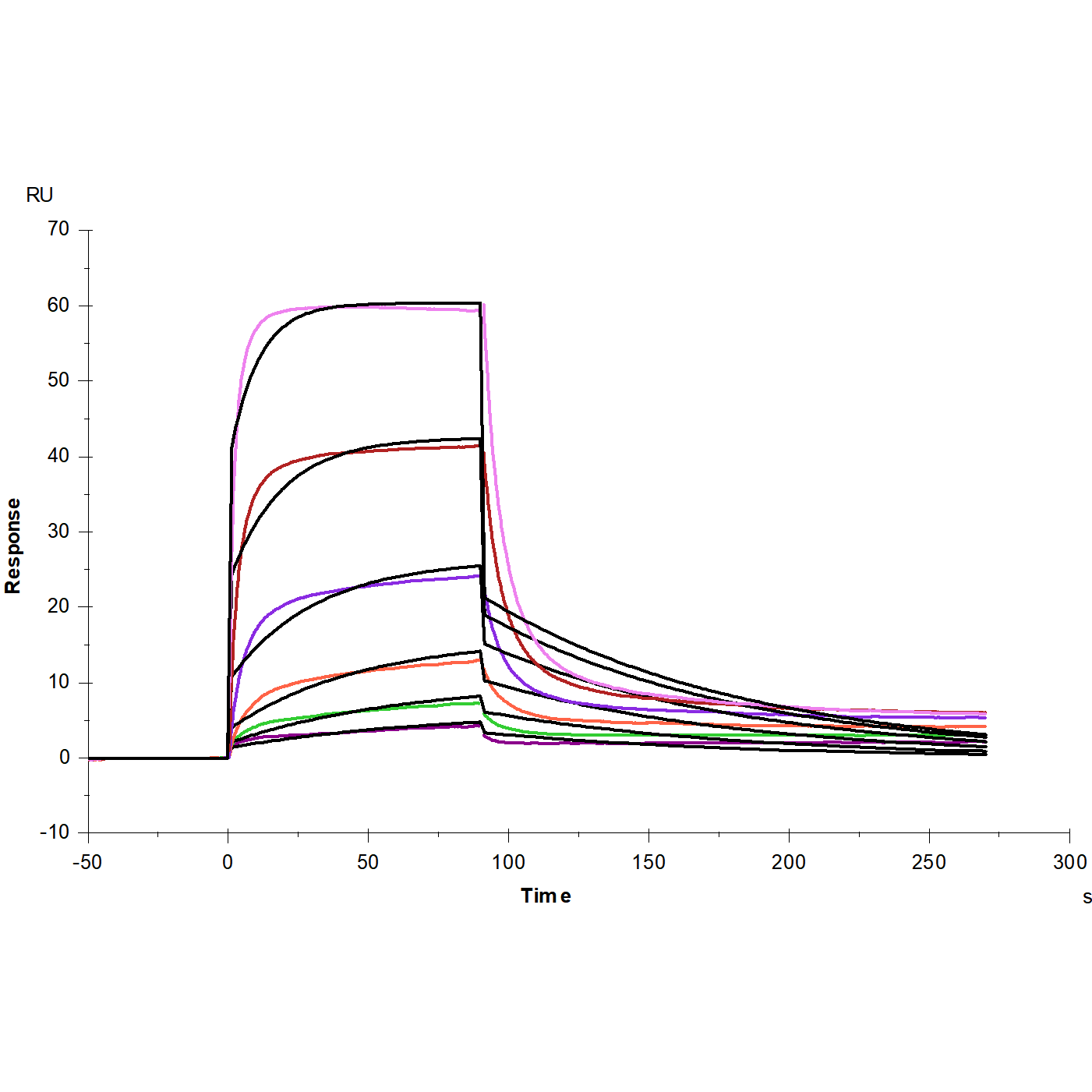Protein A Chip captured MICB Fc Chimera protein, Human (Cat. No. UA010583), can bind NKG2D/CD314 His Tag, Human (Cat. No. UA010938) with an affinity constant of 0.25μM as determined in SPR assay.
Product Details
Product Details
Product Specification
| Species | Human |
| Synonyms | NKG2D, CD314, KLRK1, NK cell receptor D |
| Accession | P26718-1 |
| Amino Acid Sequence | Phe78-Val216, with N-terminal His |
| Expression System | HEK293 |
| Molecular Weight | 25-35kDa (Reducing) |
| Purity | >95% by SDS-PAGE |
| Endotoxin | <0.1EU/μg |
| Tag | His Tag |
| Physical Appearance | Lyophilized Powder |
| Storage Buffer | PBS, 5% trehalose, PH7.4 |
| Reconstitution | Reconstitute at 0.1-1 mg/ml according to the size in ultrapure water after rapid centrifugation. |
| Stability & Storage | · 12 months from date of receipt, lyophilized powder stored at -20 to -80℃. · 3 months, -20 to -80℃ under sterile conditions after reconstitution. · 1 week, 2 to 8℃ under sterile conditions after reconstitution. · Please avoid repeated freeze-thaw cycles. |
| Reference | 1. Wang J, Wang Y, Jiang X, Xu M, Wang M, Wang R, Zheng B, Chen M, Ke Q, Long J. Unleashing the power of immune checkpoints: Post-translational modification of novel molecules and clinical applications. Cancer Lett. 2024 Feb 22:216758. |
Background
NKG2D, also known as CD314, is an immune receptor that consists of two disulfide-linked type II transmembrane proteins with short intracellular proteins incapable to transduce signals. NKG2D also plays an important role in viral control. NKG2D is a major recognition receptor for the detection and elimination of transformed and infected cells as its ligands are induced during cellular stress, either as a result of infection or genomic stress such as in cancer. Cellular stress can induce ligands for NKG2D which results in the cell susceptible to NK cell-mediated lysis.
Picture
Picture
SDS-PAGE
SPR



